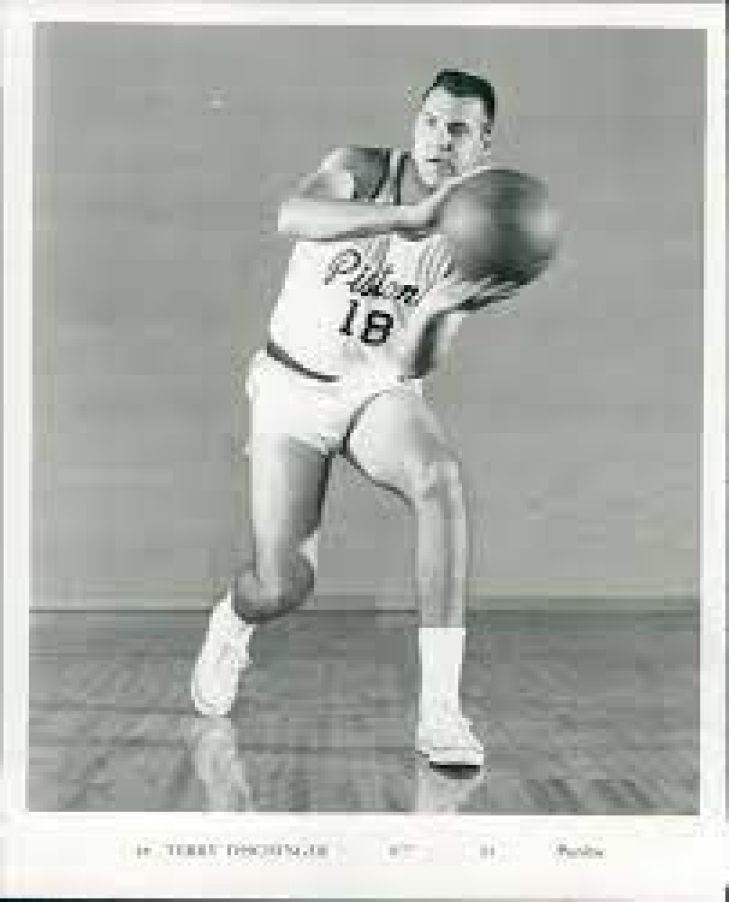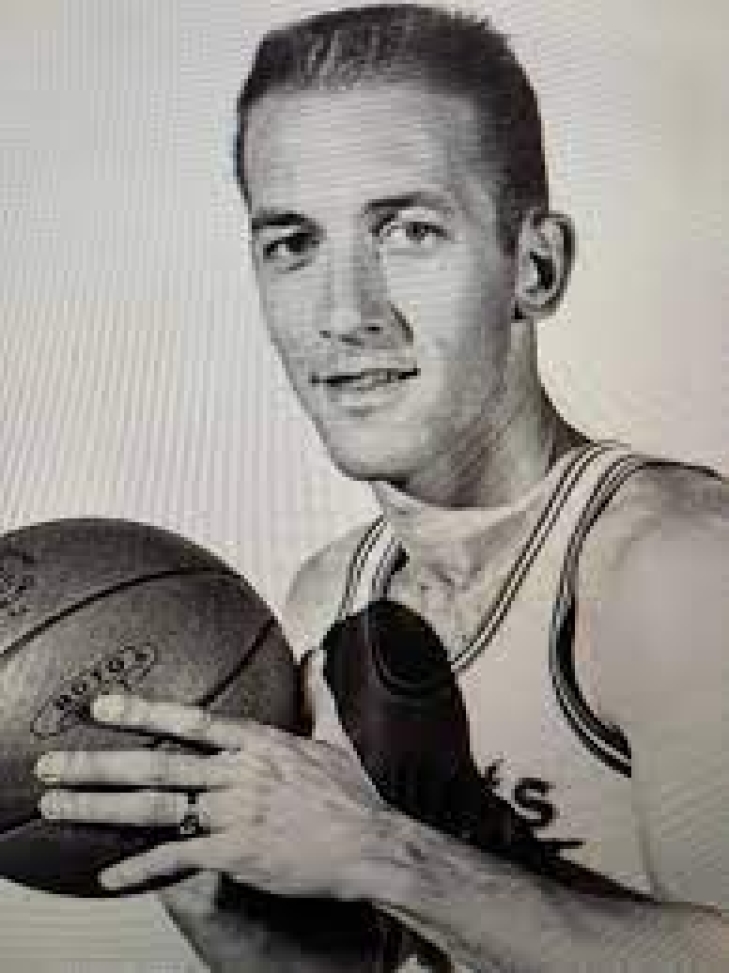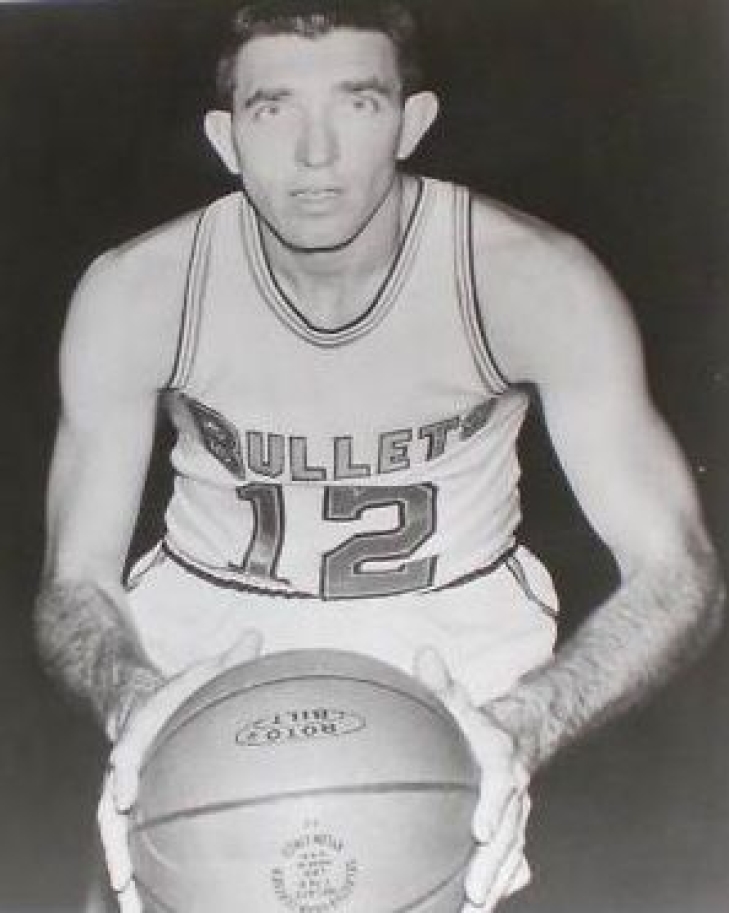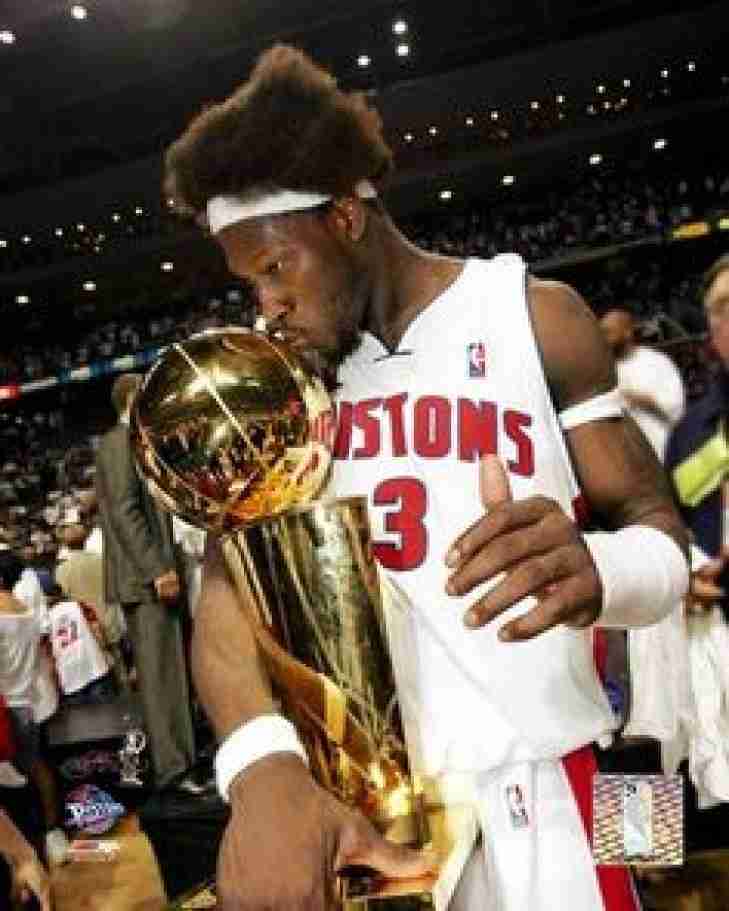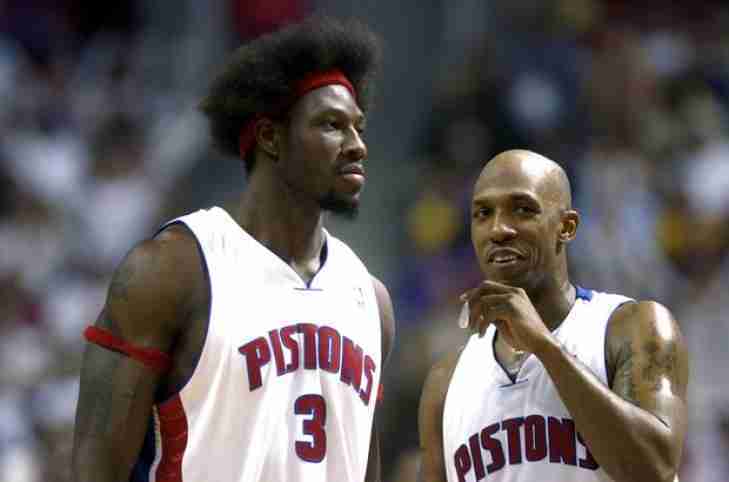65. Terry Dischinger
Terry Dischinger was one of the most successful players in Purdue history. He set multiple Boilermaker records and averaged 28.3 Points and 14.3 Rebounds per Game in his three years in the NCAA. His amateur career also saw Dischinger win Olympic Gold for the United States in 1960, and his professional career was also exceptional.
Drafted by the Chicago Zephyrs in the Second Round in 1962, Dischinger brought his cerebral nature to the NBA. His efficient play garnered him three consecutive All-Star appearances, coinciding with his first three NBA years, though they were all in three different cities. The Zephyrys relocated to Baltimore, and in his third year, he was traded to the Detroit Pistons. The 1963 Rookie of the Year was not a dazzling scorer, but he averaged over 20 Points per Game in his first two seasons and 18.2 in his third.
Dischinger’s career was interrupted by military service, and when he came back in 1967, he was not the same player. He returned to the Pistons for five years, scoring less, but still leading by example. Dischinger was traded to Portland, where he played one final year before retiring.
57. Don Ohl
Normally, when a player becomes a five-time All-Star in the National Basketball League, they enter the league, albeit with trepidation, but with confidence that they could eventually reach the top tier. And then there is Don Ohl.
Ohl did well in his final season at Illinois and was drafted by the Philadelphia Warriors in the 5th Round of the 1958 Draft, but he never reported and felt he wasn’t good enough. Instead, he played for Peoria of the National Industrial Basketball League, and led them to an AAU Tournament win in Denver. Later, he tried out for the U.S. Olympic Team, and though he did not make it, he proved to scouts and, more importantly, to himself that he could play on basketball’s biggest stage. Detroit traded for his rights, and off he went to the NBA.
Playing at Guard, Ohl was not a flashy player but was durable and consistent. Ohl was more than solid at both ends of the court, and he developed a scoring touch that saw him score at least 17 Points for six seasons in a row (1961-62 to 1966-67), with the last two exceeding 20 Points. Over this time period, Ohl had five consecutive All-Stars (1963-67), but it was split between two teams. The Baltimore Bullets traded for Ohl in an eight-player deal in 1964, and his best seasons of his peak period were as a Bullet. Ohl helped Baltimore reach their first conference final, and though they lost to the Los Angeles Lakers, Ohl not only proved he belonged, but that he could hang with the best.
Ohl was traded to the St. Louis Hawks in 1968, and concluded his career as the team relocated to Atlanta for two more seasons.
42. Gene Shue
Gene Shue's journey in the world of basketball took off at the University of Maryland, where he showcased his skills as an All-ACC Selection. As a talented and innovative guard, Shue was chosen as the third overall pick by the Philadelphia Warriors in 1954. However, a brief stint in Philadelphia ensued after a dispute over his first paycheck, leading to his trade to New York. Shue's fortunes turned when he was traded to the Fort Wayne Pistons, providing him with the opportunity to become a key starter and a standout player.
Following the relocation of the franchise to Detroit, Shue experienced the peak of his playing career. He achieved an impressive five consecutive All-Star selections from 1958 to 1962, and notably received All-NBA honors in 1959-60 and 1960-61. During these standout seasons, Shue maintained an impressive average of over 20 points per game and secured seventh and tenth place in the MVP voting, respectively.
After this remarkable phase, Shue continued to play for two more years, one with New York and the other with Baltimore. His association with the Baltimore team extended beyond his playing career, as he later took on the role of coach and achieved the remarkable feat of winning two Coach of the Year Awards.
The Detroit Pistons Retire Ben Wallace's Number 3
As such, it is important to us to make notice that the Detroit Pistons retired the number 3 of Ben Wallace last night in a ceremony during halftime of their home game against the Golden State Warriors.
Wallace was a four time NBA Defensive Player of the Year who was a member of the 2004 NBA Championship Team. As a Piston, “Big Ben” was a four time All Star averaging 6.6 Points and 11.1 Rebounds per Game with a 16.5 PER.
The retirement of Wallace’s number marks the eighth time that the Detroit Pistons have retired a number. Wallace is eligible for the Basketball Hall of Fame in 2017.
We here at Notinhalloffame.com would like to congratulate Ben Wallace for receiving this prestigious honor.
Ben Wallace and Chauncey Billups to be honoured by the Detroit Pistons
As such it is noteworthy to us that the Detroit Pistons will be announcing that the club will be honoring the jerseys of Ben Wallace and Chauncey Bilups through the 2015-16 Season.
Specifically, Wallace will be honored on January 16 in a game against the Golden State Warriors and Billups will be honored in a game against the Denver Nuggets in February 10.
Both Billups and Wallace were members of the Pistons 2004 NBA Championship Team and will have their number retired by the team,
Ben Wallace arrived in Detroit in 2000 and would make all of his four All Star Games while playing for the Pistons. He would spend more than half of his career in Motown and the tall man would average a double digit Rebound figure in Detroit and would also put up stats that would gave him four NBA Defensive Player of the Year Results.
Big Ben would also post five season as an All-NBA Player (three as Second Team and two as Third Team) and was clearly a defensive standout in Detroit.
Billups would also become a four time All Star and a two time Second Team Defensive Player and three time post season All-NBA player as a Piston. He would be named the MVP of the NBA Finals in 2004.
We here at Notinhalloffame.com would like to congratulate Chauncey Billups, Ben Wallace and the Detroit Pistons at this time.


